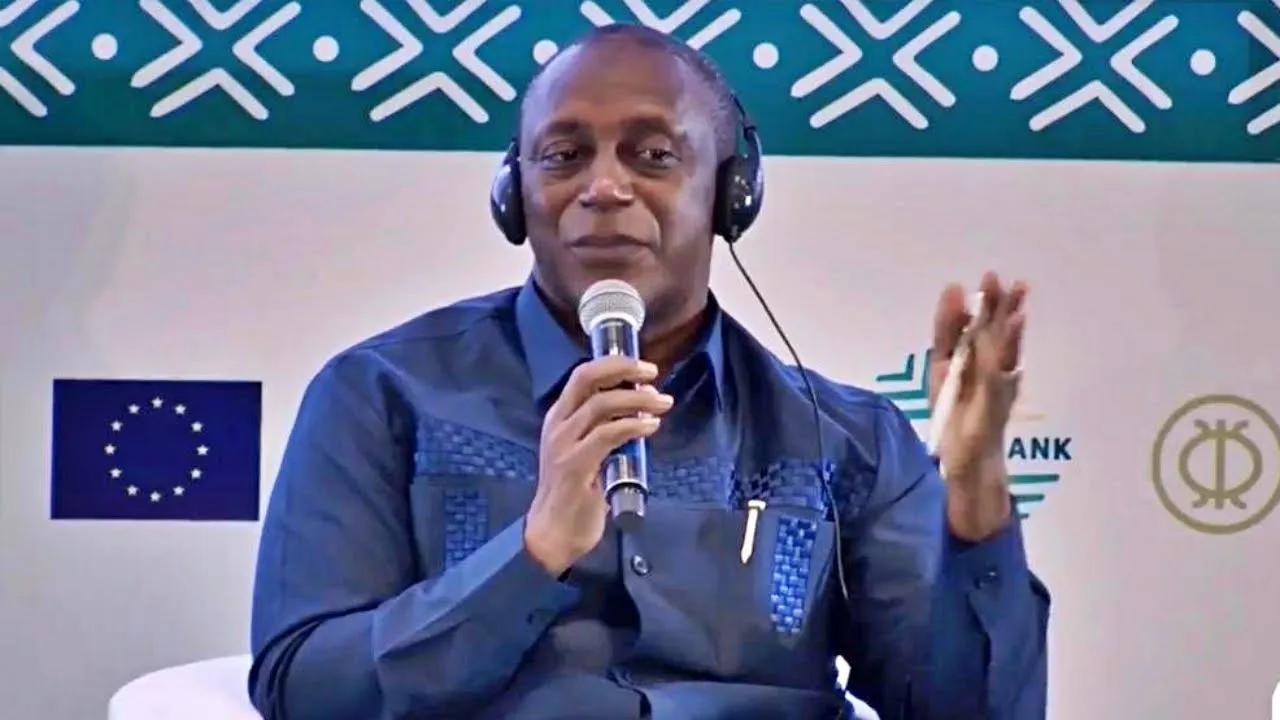Dr. Kandeh Kolleh Yumkella, the Sector Lead Chairman of the Energy Governance Coordination Group, has clarified that ministers are not responsible for directly fixing the electricity problems in Sierra Leone. Speaking at a weekly press briefing organized by the Ministry of Information and Civic Education, Dr. Yumkella emphasized that ministers do not manage the daily operations of the energy sector. Instead, they provide financial resources and policy direction.
“Ministers are not in charge of fixing the electricity problem,” Dr. Yumkella said. “Gone are the days when a lack of electricity would result in claims that ministers are not doing their jobs. Ministers provide money and policy, and they set the direction. The people who are responsible for fixing the problems are well-compensated and are accountable for their work. They are in charge of planning, based on the goals set by the president and the government.”
He further assured the public that the government would provide monthly updates on the progress of the energy sector, highlighting the importance of accountability and transparency.
Dr. Yumkella also stressed that addressing energy challenges is a continuous process that requires ongoing effort. He cited Kenya’s experience as an example of how successive governments have worked steadily to improve their energy systems over time. “The energy sector needs continuous work, and the people the president has put in charge are the ones holding the energy sector together, along with their dedicated staff,” he explained.
The Energy Governance Chairman outlined the current situation in Sierra Leone’s energy sector, stating that while the country has an installed capacity of 271 megawatts, only 122 megawatts are being delivered to the system due to outdated distribution lines. He noted that some power stations, like the Kingtom power station, which had been renovated, are still not supplying electricity, while others, like Blackhall Road and Charlotte Power, are currently not operational. Additionally, the solar plant in Newton, which should be providing 6 megawatts, is only supplying 3 megawatts.
Dr. Yumkella explained that, at present, the government controls about 47 megawatts of energy purchased from overseas, particularly from Côte d’Ivoire. Currently, Sierra Leone is receiving 7 megawatts, which are distributed to the Kono, Kenema, and Bo districts. He also revealed that Sierra Leone is negotiating with Guinea to purchase additional electricity, as Guinea has a surplus of water this year, which enables them to generate more power. Dr. Yumkella noted that testing for electricity transmission between Sierra Leone and Guinea has already been completed, and Transco, the power transmission company, has connected the lines.
While acknowledging the challenges, he reassured the public that the government is making progress in improving the energy situation. He mentioned that Karpowership, which provides energy at a rate of 23 to 25 cents per kilowatt, as well as solar installations, are playing a role in the country’s power supply. However, he noted that Karpowership provides energy at night, while other sources such as Bumbuna and solar plants are also contributing to the national grid.
Dr. Yumkella ended up by stressing that while the energy sector faces significant challenges, the government is actively working towards solutions through both local and international partnerships. He assured Sierra Leoneans that progress is being made, and the government remains committed to improving the country’s electricity supply.

